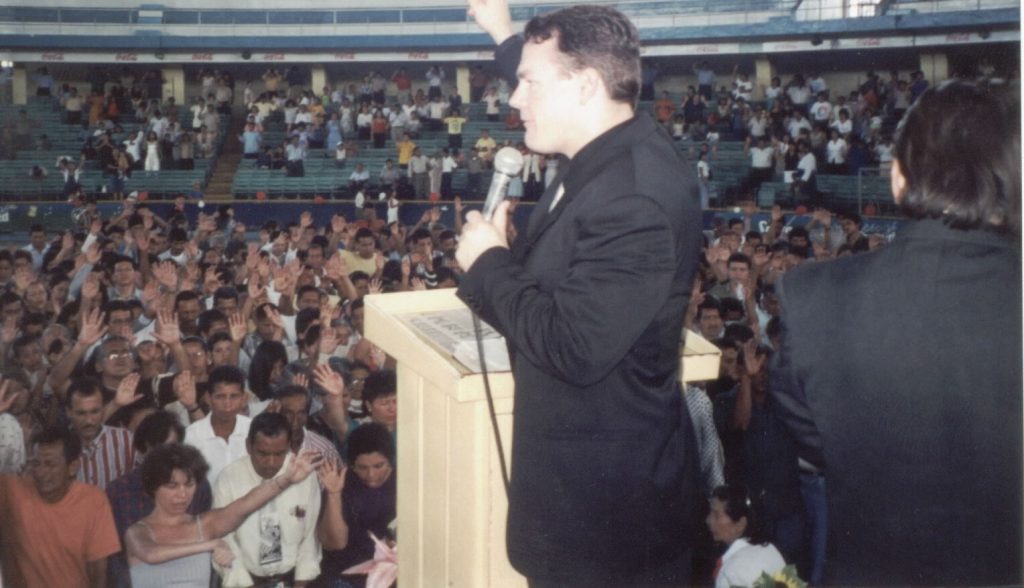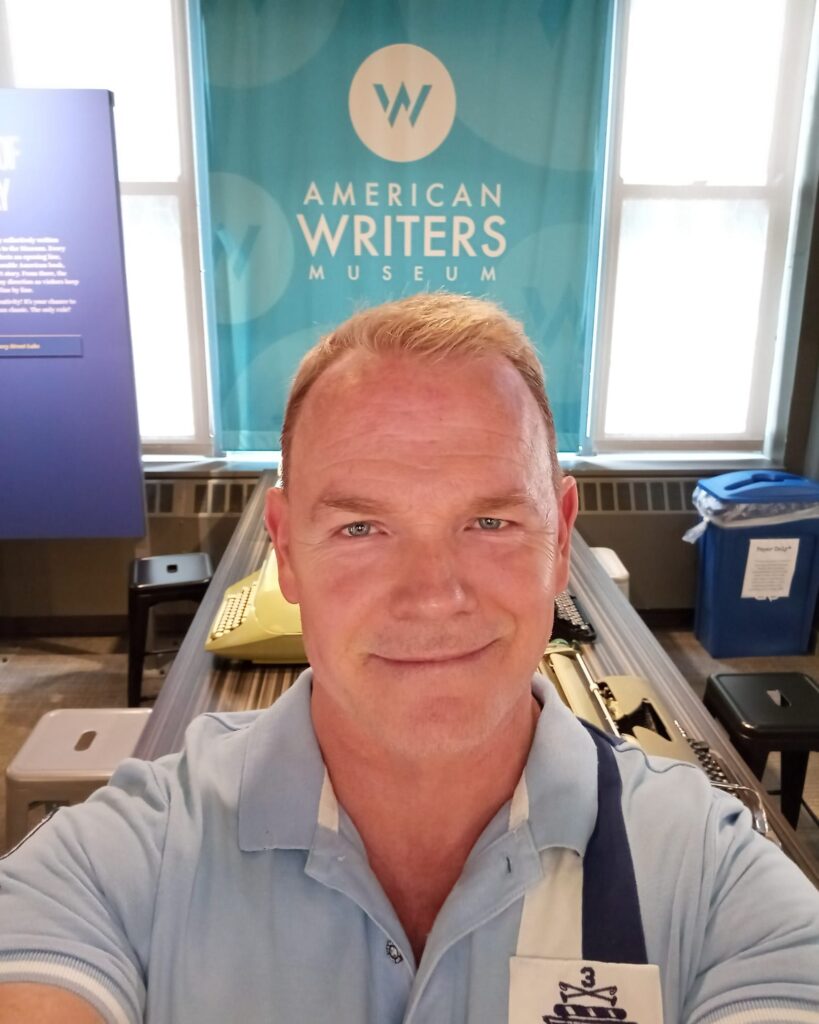When I came home from my 6th grade science class with a D on my progress report, my father decided to take out the belt and apply some pressure to my backside to increase understanding up above.
Invite worldwide speaker and life-changing author Paul F. Davis to speak to your college students about academic success secrets and breakthrough leadership!
RevivingNations@yahoo.com
407-967-7553
My father rarely had to spank me, because I quickly and respectfully responded. I didn’t particular enjoy being beaten. Nevertheless somehow it did the trick and compelled me to learn and master academic success.
How farther ahead I would have been had a parent or teacher actually taken the time to sit down with me and teach me proper study habits. Unfortunately, I can honestly say that throughout my entire academic years in elementary school, middle school, high school, college, Bible school, and graduate school nobody… that is right… absolutely nobody ever bothered to teach students how to make better grades, excel academically, and achieve academic success.
Yet schools, colleges, and parents are quick to discipline students who fail below average and don’t make the desirable grades in school. Ironically, educators who think themselves to be so wise rarely think past their nose to teach students how to learn, process information, memorize vital info for tests, and strategically take tests with success in mind.
Therefore it should be no surprise so many fail and become disenchanted with the educational system as a whole. Those who master it tend to come out as cookie-cutter conformists who on occasion rough up and look down upon anybody who does not fit the educational mold.
As for me however, I was the class clown, a non-conformist, who was equally intelligent and yes, very sarcastic. I liked to ask my teachers, instructors, and professors the hard and challenging questions, the ones most students wanted to ask, but didn’t have the guts to do so.
Hence evolved my academic success secrets unbeknownst to me.
1. Cultivate intellectual curiosity and don’t be afraid to ask the hard questions.
When you are genuinely and creatively thinking, unique and hard questions will arise to challenge the status quo. This is how every major breakthrough historically has occurred for humanity from Thomas Edison to Albert Einstein; Benjamin Franklin to Henry Ford; the Wright brothers to Bill Gates.
When most said not so, these men said why not? When others laughed and scorned them for their creative ideas, they masterminded their brilliance and successfully acted upon their ideas to transform life as we know it (and make millions and billions of dollars in the process).
2. Respect and uphold your teachers / educators / professors, even when you disagree with them and have to swallow your pride.
No matter what anybody tells you, educators have egos just like anybody else. In fact, perhaps moreso. They like to be right and have the power via the grades they give you, to tell you you’re wrong.
Keep in mind most educators are specialists, which means they often think only in terms of their subject and not much more. This can make them rigid and frigid by nature if they are not careful. Nevertheless if you want to curry favor with them and make the grades you desire, you need them on your side and want to be careful not to rub them the wrong way. That being said, beware also of over doing it and coming across as if you are trying to patronize them.
3. Be steady, respectful, consistent, and diligent in doing your work daily.
Educators like disciplined students who obey instructions, follow rules, and complete assigned tasks. Despite the motivation (and some speculate they like to feel powerful and tell you what to do), as a college student you must trust the academic process.
Remember the karate kid (movie) did not understand why he was painting fence and waxing cars, when he had asked his dojo master to teach him martial arts.
4. Trust the process and be patient.
When he finally exploded and couldn’t endure the hard work (what he seemed to be cruel labor) any longer, the “karate kid’s” mentor revealed to him how each movement in the painting and car waxing applied to the martial arts he was teaching him. These moves were just hidden beneath the laborious work he was performing.
Suddenly the light bulb came on for the karate kid and he embraced the teaching methodology of his master. College students often easily anger at their professors and advisors, often wondering and questioning what the point is of many classes and required curriculum. Nevertheless when you put it all together collectively, once these disciplines are fully learned, you have a mighty foundation upon which to stand upon as you enter your academic discipline and career of choice.
5. Discover what type learner you are.
We all process information differently: some visually, others audibly, than some kinesthetically.
Knowing your learning style will enable you to study adequately accordingly as you adjust your approach to processing information and knowledge.
Whenever I study, I like to read the material out loud (as did President Abraham Lincoln) to introduce the material to me audibly as well as visually. I discovered the more senses I can get fully engrossed in the material, the more likely it is I will learn and remember it.
This proved to be true as I went in 6th grade from being a D student to scoring a 100% on my next two science exams in which I had to locate all of the bones of the body and spell each correctly.
As I buried myself in the anatomy book, being but 10 years old in the sixth grade, I visually processed the location of the bones of the body. Thereafter I covered the names of these bones with a piece of paper and started quiz myself.
Then I verbally sounded out each bone by name as I progressively memorized each. It took some time, but one by one, I eventually learned each bone by name. Next I would repeat the same process when it came to spelling these bones correctly.
By merging auditory and visual learning together simultaneously, I mastered and aced that science test and earned the most improved student award that year for my science teacher.
When my father years later would try the belt on my younger brother to compel him to improve his grades, it didn’t work. Hence what made the difference was my heartfelt commitment to education, personal improvement, and pain avoidance.
Most importantly however, what drove my academic success and sudden transformation was the discovery of how to process, communicate, and retain information. Somehow serendipitously (or by way of the fear of survival and avoidance of the belt) I figured out how to drive home meaningful information into my brain until I remembered it.
6. Celebrate your success.
When you succeed academically, be sure to reward yourself. My father took great pride in my success and began taking me to breakfast every morning before school. It became a tradition of ours and a time for us to have father & son heartfelt talks.
Find some way therefore to celebrate yourself after you have worked hard and succeeded academically. Studying is hard work and afterward you need some form of relief and personal enjoyment.
When I took the four hour law school admissions test, I was ready to go to the beach afterward. I didn’t want to see or look at a book. Therefore after you work and study hard, reward yourself, and celebrate your success.
7. Make friends with intelligent people.
Show me your friends and I will show you your future.
Birds of a feather flock together. Therefore if you want to be bright, associate with others who are more bright than you. They will teach you things. You will hear their conversation and discover their intellectual pursuits, while learning how they process information to achieve academic success.
Improving your friends, choosing those who don’t curse and use more intellectual language, will force you to become more well versed and skillful at communication. Undoubtedly this will advance you greatly academically and in the future professionally. Communication is a vital component and key to success in any field.
Know that some things are not taught, but rather caught through conversation and observation as you participate in meaningful interactions with high caliber people.
Put these 7 success secrets to work for you and you will be a college student on your way to great success and extraordinary achievement.
Invite worldwide speaker and life-changing author Paul F. Davis to speak to your college students about academic success secrets and breakthrough leadership!
RevivingNations@yahoo.com
407-967-7553
Paul is an exceptional and frequently requested speaker for college student success, leadership, orientations, and to kickoff college events.
Paul’s 17 life-changing books have landed him celebrity guest appearances on Fox News Radio, Investor’s Business Daily, and 3 times on Oprah & Friends.
After a 45 minute interview on Playboy Radio, Afternoon Advice host Tiffany Granath calls Paul an awesome relational coach and recommends his books on love, dating, and sexuality.
Paul’s academic success & leadership secrets for college students are unparalleled and greatly empowering. Paul builds bridges cross-culturally, cultivating diversity awareness, while empowering college students to discover their destiny and live their dreams.
A master in NLP & life coaching; Paul’s humorous, fun, playful and transformative messages graciously challenge college students to ask themselves hard questions and be their personal best.
As a former high-school senior class English and ESOL teacher, Paul understands the challenges facing incoming college students. Moreover Paul personally knows what transfer students go through as he himself attended a community college where he graduated with a 3.8 GPA before entering UCF, where he graduated Cum Laude. As a worldwide professional speaker who has touched more than 50 countries and 6 continents, Paul greatly appeals to international students throughout the world.
Paul worked at Ground Zero in NYC during 9/11; helped rebuild a home at the tsunami epicenter; comforted victims of genocide in Rwanda; spoke to leaders in East Timor during the war; inspired students & monks in Myanmar; promoted peace & reconciliation in Pakistan; and has been deep into rural Africa where villagers had never before seen a white man.
Paul empowers people to love passionately, work together globally, and live their dreams fearlessly.

